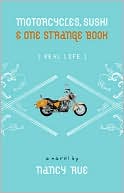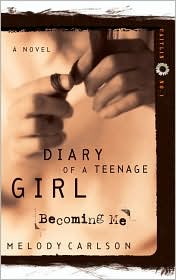I remember when Jeanette Oke and “deliverance” stories were about the only options teenage girls had if they wanted to read some Christian fiction. The inventory has greatly expanded, especially in the YA category, and almost every secular literary genre now has its Christian counterpart, especially for girls. Does she like historical, cozy mystery, fantasy, paranormal, sci-fi, lighthearted chick-lit? Chances are, Zondervan, Bethany House, Tyndale, or Thomas Nelson has published a title for it. Since the explosion of faith-based novels in the 1980s, writing quality has improved and the situations are more realistic and relatable. But there are certain problems in the category that are difficult to grasp, much less overcome. Can it be that “Christian fiction” is itself something of an oxymoron, splicing absolute truth with an art form that stops being art as soon as it starts stating absolutes? And if fiction is not allowed to preach, what “Christian values” can it communicate? A survey of five recent YA novels from Christian publishers (three today, two on Saturday) might give us a clue.
 Motorcycles, Sushi, and One Strange Book, by Nancy Rue. Zondervan, 2010, 211 pages. (First in the Real Life series)
Motorcycles, Sushi, and One Strange Book, by Nancy Rue. Zondervan, 2010, 211 pages. (First in the Real Life series)
Jessie has ADHD and has learned to manage it by crafting a persona of wackiness. Her mom is bi-polar, which is harder to manage, especially when Mom goes off her meds and ends up in the hospital. Enter Dad (Lou), a former alcoholic who suddenly appears and offers to take Jessie home to Florida for a few weeks while Mom recuperates. Jessie feels nothing but resentment for the father who abandoned her long ago, even though he claims to have reformed. But there’s no other option but Florida.
In the airport, Jessie happens to pick up a leather-bound book and stows it away in her backpack–even though she’s not a reader–because it feels suitably transgressive. She’s prepared to hate everything in Florida: the humidity, her room, her bratty half sister Louisa (Wheezy). Also Rocky, an employee at her dad’s motorcycle shop who happens to be equal parts gorgeous and irritating. Of course we can see where this is going: eventual bonding with Weezie, healing with Dad, and as for Rocky . . .
The book swiped from the airport is called Real Life, and Jessie’s story is the first of an intended quartet in which needy characters “happen” to pick up the leather-bound volume and discover that it talks to them. What it delivers is rather soft-core and Petersonesque–in fact, the idea is inspired by Eugene Peterson’s Eat This Book. At various points in the story, Jessie opens the book and finds an answer to the very questions she’s been asking. For example: “‘Let your enemies bring out your best,’ Yeshua says. ‘Instead of letting them make you lose it, take it as an opportunity to be your best self, your true self.'” Hey, that was easy!
Motorcycles, Sushi, and One Strange Book has some strengths, but its main weakness is the presentation of Christianity as something like a 12-step-plan to a happier life–a failing of many contemporary churches, as it happens. We can go deeper, as in
Becoming Me, by Melody Carlson. Multnomah, 2010. (First in the Diary of a Teenage Girl series.)
Caitlyn O’Connor is deep in teenage drama when the story opens: drifting away from her long-term bff, beginning to move in popular circles, dating Josh, a boy she likes but doesn’t trust. After being deceived and dumped by the new bff, Caitlyn returns to her previous friend, Beanie, who has become a Christian through her friend Zach. Curious, Caitlyn starts going to church with Beanie and Zach and in time (actually, not too much time) accepts Christ as her savior. Then the drama really begins.
The main struggle has to do with sex. Beanie and Zach compromise their own standards and drift into a serious relationship that ends with Beanie getting pregnant and Zach losing interest in her. At the same time Josh, who is a more substantial person than he appeared at first, is led astray by Jenny, the popular girl. These negative examples cause Caitlyn to think long and hard about relationships, and eventually to kiss dating goodbye. This cements her conversion and she experiences no doubts about it for the rest of the story (which still has about one-quarter to go). Future books will show the effects of that decision and chart the relationship of Caitlyn and Josh on their Christian walk.
I appreciate the fact that “making a decision for Christ” is only the start; Caitlyn is saved less than halfway through, and in the other half must decide what salvation means. “[T]o follow God is a conscious choice [says her youth leader] . . . but you had to give up yourself entirely–and you had to surrender your whole life to God’s son Jesus Christ–‘Relationship is more important than religion.'” To those of us who are farther along, this will seem like theology lite, and there’s a little too much drama, especially when the youth leader, Clay, is killed in a school shooting. (An incident that momentous shouldn’t be introduced in the last quarter of a novel because there’s not enough room to deal with it sufficiently.) Christian couples who rationalize their way into a sexual relationship are unfortunately common, so whether they give up dating or not, it’s an issue girls need to consider carefully. Diary of a Teenage Girl might be helpful.
Love Will Keep Us Together, by Anne Dayton and May Vanderbilt. Hatchett: 2010, 287 pages. (Last in the Miracle Girls series)
Riley, Ana, Christine, and Zoe are the “Miracle Girls,” so called because each of them escaped death in some way. Each book in the series is named for a song title, covers a year in high school, and takes the perspective of one of the girls. This is Riley’s turn. Riley is smart, pretty, popular, and completely overcome by Senior Paralysis. Her ideas about the future have begun to diverge from her parents’ ideas; in addition, she’s worried about her autistic brother, thrown into an emotional tailspin when her ex-boyfriend comes back into her life, and disappointed when the new pastor at her church seems clueless. “Freshman year, I really bought into the whole ‘J-man is my buddy routine,’ but now I don’t know. These days I need something more than that . . . something deeper, bigger and more inspiring.”
I suspect a lot of Christian teens feel this way, and it’s Riley’s conflicts with her church that I appreciate most: “Why does church boil stuff down to baby food?” She’s hasty and sharp and misjudges some people, but comes around by the end, acknowledging that “this is what the body of Christ is really like. It’s made up of thousands of individuals with different notions and views of the world.” Well, yeah–but that’s a lesson even mature Christians tend to forget. Still, I sympathize with Riley’s frustration and hope she can find a more challenging fellowship.
Love Will Keep Us Together doesn’t set up a central conflict, but follows the girls through the crises and struggles of senior year and brings each to the threshold of adult life. Their friendship suffers a few dings in the process, but holds firm–maybe too firm. Statements like this are a little disconcerting: “Lying to your parents is one thing. Lying to your adopted sisters, the best friends you’ve ever had, is definitely another.” Huh? Riley’s ex-boyfriend, Tom, turns out to be a jerk, but there’s a new guy, Ben, who I like a lot. I also like that Riley decides to take a gap year before going to college (way to go, girl!) to sort things out. I wish more 18-year-olds did this.
As entertainment, there’s nothing wrong with these books; they are like the other kids in the youth group who can be positive reinforcement while trying to chart a godly course through the adolescence. But I wouldn’t recommend an exclusive diet of them, for reasons that must wait for the next installment. Until Saturday, Lord willing . . .
For more about what teenage girls are reading, see Dystopia, Dead Ahead and Looking for Love: the Paranormal Teen Romance. But don’t neglect the classics–Charlotte Bronte might be a little creaky, but she still has a handle on what makes a girl’s heart beat faster.
Support our writers and help keep Redeemed Reader ad-free by joining the Redeemed Reader Fellowship.
Stay Up to Date!
Get the information you need to make wise choices about books for your children and teens.
Our weekly newsletter includes our latest reviews, related links from around the web, a featured book list, book trivia, and more. We never sell your information. You may unsubscribe at any time.
We'd love to hear from you!
Our comments are now limited to our members (both Silver and Golden Key). Members, you just need to log in with your normal log-in credentials!
Not a member yet? You can join the Silver Key ($2.99/month) for a free 2-week trial. Cancel at any time. Find out more about membership here.
1 Comments
Leave a Comment
You must be logged in to post a comment.


I would like to recommend to you the Christy Miller series by Robin Jones Gunn. They are definitely teen lit, but it works for teens. I know because I read them as a teenager and then lent them out when I was a middle school teacher to some students who proceeded to fall in love with them. They are distinctly Christian- so much so that through the first one I came to an understanding of the doctrine of salvation. I think they are much better in quality and content than Carlson’s series. I can’t wait to share them with my daughters in ten years!